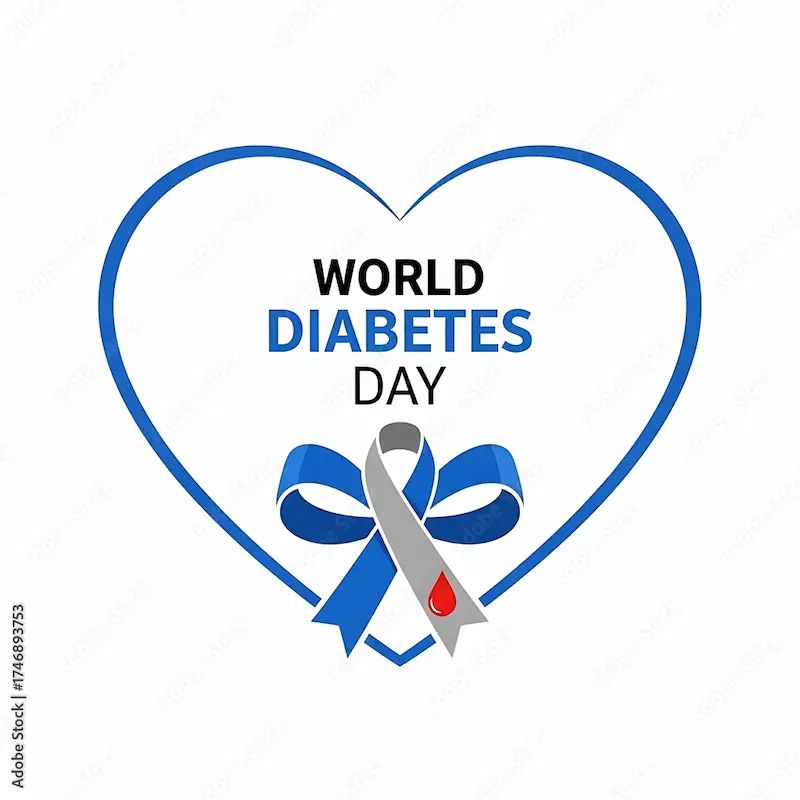Outsmarting Diabetes: A Plan for a Healthier Life
While diabetes has no cure, that doesn't mean it can't be outsmarted. Balanced nutrition, regular exercise, and lifestyle changes can help individuals take control of their health and manage diabetes successfully.

Written by
Last updated on 13th Jan, 2026
Diabetes is outsmarted by a smart approach to daily habits and choices. Individuals can have control over their condition and their quality of life with healthy eating, being active and developing regular routines. Following these little steps can help individuals balance blood sugar and reduce the risk of complications in the long run.
This blog aims to outline how diabetes can be managed while maintaining a healthy lifestyle, covering its causes, symptoms, diagnosis, treatment, and more.
Understanding Diabetes & Its Types
Diabetes is an incurable condition characterised by elevated blood glucose levels due to the body's inability to produce or effectively use insulin. The main types of diabetes are:
Type 1 Diabetes: It is an autoimmune condition where the body produces little or no insulin. Children and young adults are often diagnosed with type 1 diabetes.
Type 2 Diabetes: It is a condition where the body doesn't use insulin properly, often associated with being overweight or obesity and a family history of the disease. It can develop at any age.
Gestational Diabetes: It develops during pregnancy and typically resolves after childbirth.
Causal and Risk Factors of Diabetes
Diabetes is a chronic condition and is influenced by various genetic and lifestyle factors. The genetic factors causing diabetes include:
Family History: If the family members (siblings, parents) have type 2 diabetes, the risk of developing the condition is higher due to genetic factors.
Ethnicity: Some ethnic groups are more prone to developing diabetes than others, such as African Americans, Hispano/Latinos, American Indians, and Alaska Natives.
Lifestyle and dietary influences can also be a risk factor for developing diabetes. Some of them include:
Obesity is a well-established risk factor for type 2 diabetes; it is one of the strongest risk factors for the disease.
Lack of exercise or physical activity can lead to the development of diabetes.
High intake of foods containing saturated fats and SSBs (Sugar-Sweetened Beverages) is a risk factor for type 2 diabetes.
Symptoms of Diabetes
When diabetes is not well-managed, it can present a range of symptoms. Here are some common symptoms:
Fatigue
Blurred vision
Polydipsia and polyuria
Unexplained weight loss
Ulcers that take long to heal
Recurrent infections
If diabetes remains untreated, it can lead to several serious complications:
Eye damage
Skin conditions
Heart and blood vessel damage
Nerve damage (neuropathy)
Kidney damage (nephropathy)
Consult Top Diabetologist
Diagnosis and the Importance of Regular Screening
Diabetes is diagnosed by several tests that help to evaluate blood sugar levels. The American Diabetes Association outlines several common diagnostic tests, such as:
Fasting Plasma Glucose (FPG) Test: It measures blood glucose levels following an overnight fast. A reading of 126 mg/dL (milligrams per deciliter) or greater suggests diabetes.
Oral Glucose Tolerance Test (OGTT): It involves drinking a glucose solution, with blood glucose levels measured before and two hours after consumption. A two-hour level of 200 mg/dL or higher suggests diabetes.
Hemoglobin A1C Test: It reflects the average blood glucose level during the previous two to three months. An A1C level of 6.5% or greater on two independent tests indicates diabetes.
The NIDDK (National Institute of Diabetes and Digestive and Kidney Diseases) insists that screening helps to identify the disease at an early stage, reducing the risk of developing complications. Screening is particularly important for:
Individuals with a family history of diabetes
Those who are overweight or obese
People with high blood pressure
Individuals over the age of 45
Management and Treatment
Diabetes can be managed by medications and changes in diet and activities. Treatment options for diabetes include:
Insulin Therapy: It is essential for type 1 diabetics and sometimes for type 2 diabetes. It involves injecting insulin to control the level of glucose in the blood.
Oral Medications: For type 2 diabetes, many types of oral medications are used to manage blood glucose levels. These include:
Metformin
Sulfonylureas
GLP-1 (Glucagon-Like Peptide-1) Receptor Agonists
SGLT2 (Sodium-Glucose Cotransporter-2) Inhibitors
Lifestyle modifications and diet control are also an integral part of controlling diabetes.
Eating healthy food is essential for managing diabetes.
Staying active most days helps maintain blood sugar levels.
Regular blood sugar testing is crucial for monitoring the condition.
Prescribed medications should be continued, even when feeling better.
Learning stress management techniques is important.
Managing the emotional aspects of diabetes and coping with stress is key to overall well-being.
Role of Technology in Managing Diabetes
CGM (Continuous glucose monitoring systems) and insulin pumps are a form of wearable technology that dispenses real-time data regarding blood glucose levels and the amount of insulin being infused into the patient’s body. CGMs record glucose levels 24/7 eliminating most of the finger-prick tests that are invasive and painful.
Many mobile apps are also widely used to monitor blood sugar levels, such as:
Fooducate
MySugr
Buddy
Bezzy T2D
Beat Diabetes
OneTouch Reveal
Preventive Measures and Lifestyle Tips
Leading healthy lifestyle habits are important to prevent and manage diabetes. Key strategies include:
Regular Exercise: The American Diabetes Association advocates that a minimum of 150 minutes of moderate exercise should be done in a week to prevent obesity, improve insulin sensitivity, and decrease the levels of blood glucose.
Healthy Eating Habits and Diet Plans: A diet that helps control blood sugar levels include whole grain products, lean meats, fish, poultry, fruits and vegetables. According to Mayo Clinic, one should pay attention to portion sizes and avoid consuming processed foods.
Coping Strategies for Living with Diabetes
As diabetes has no cure, coping with it requires emotional well-being and building a strong support network are both important
Often people living with diabetes may face emotional challenges, like stress, anxiety or depression. Mindfulness and relaxation techniques are strategies that may help decrease stress and improve general mental health to help improve control over diabetes.
Support groups help individuals cope with challenges, reduce isolation, and offer practical advice and emotional support.
Advancements in Diabetes Research
In recent years, diabetes research has resulted in new advances, better treatments, and huge increases in life expectancy for people with diabetes. There is still much work to be done in prevention and treatment. Recent breakthroughs in diabetes treatment include:
Advances in insulin therapy
Cutting-edge diabetes management devices
Immunotherapy and β cell regeneration
Future directions in diabetes research focus on:
Developing more targeted drugs for Type 2 diabetes
Creating better combinations of drugs
Conclusion
Diabetes is a long-term condition that needs active management for life to avoid complications. It’s all about lifestyle changes, medication adherence and proactive monitoring.
People with diabetes can lead healthy lives by understanding the condition and actively participating in their care. Education allows those affected to make accurate decisions, adhere to treatment plans, and collaborate with healthcare providers to achieve optimal health outcomes.
Consult Top Diabetologist
Consult Top Diabetologist

Dr. Utsa Basu
Diabetologist
14 Years • MBBS , MD
Barasat
Diab-Eat-Ease, Barasat
(75+ Patients)

Dr. Zulkarnain
General Physician
2 Years • MBBS, PGDM, FFM
Bengaluru
PRESTIGE SHANTHINIKETAN - SOCIETY CLINIC, Bengaluru

Dr. Arif Ahmed
General Physician/ Internal Medicine Specialist
9 Years • MBBS, MD (Genl. Med.)
Kolkata
MCR SUPER SPECIALITY POLY CLINIC & PATHOLOGY, Kolkata

Dr. Nithin N T
General Physician
6 Years • MBBS, MD General Medicine
Bengaluru
PRESTIGE SHANTHINIKETAN - SOCIETY CLINIC, Bengaluru

Dr Syed Mateen Pasha
General Physician
2 Years • MBBS
Bengaluru
PRESTIGE SHANTHINIKETAN - SOCIETY CLINIC, Bengaluru
Consult Top Diabetologist

Dr. Utsa Basu
Diabetologist
14 Years • MBBS , MD
Barasat
Diab-Eat-Ease, Barasat
(75+ Patients)

Dr. Zulkarnain
General Physician
2 Years • MBBS, PGDM, FFM
Bengaluru
PRESTIGE SHANTHINIKETAN - SOCIETY CLINIC, Bengaluru

Dr. Arif Ahmed
General Physician/ Internal Medicine Specialist
9 Years • MBBS, MD (Genl. Med.)
Kolkata
MCR SUPER SPECIALITY POLY CLINIC & PATHOLOGY, Kolkata

Dr. Nithin N T
General Physician
6 Years • MBBS, MD General Medicine
Bengaluru
PRESTIGE SHANTHINIKETAN - SOCIETY CLINIC, Bengaluru

Dr Syed Mateen Pasha
General Physician
2 Years • MBBS
Bengaluru
PRESTIGE SHANTHINIKETAN - SOCIETY CLINIC, Bengaluru

